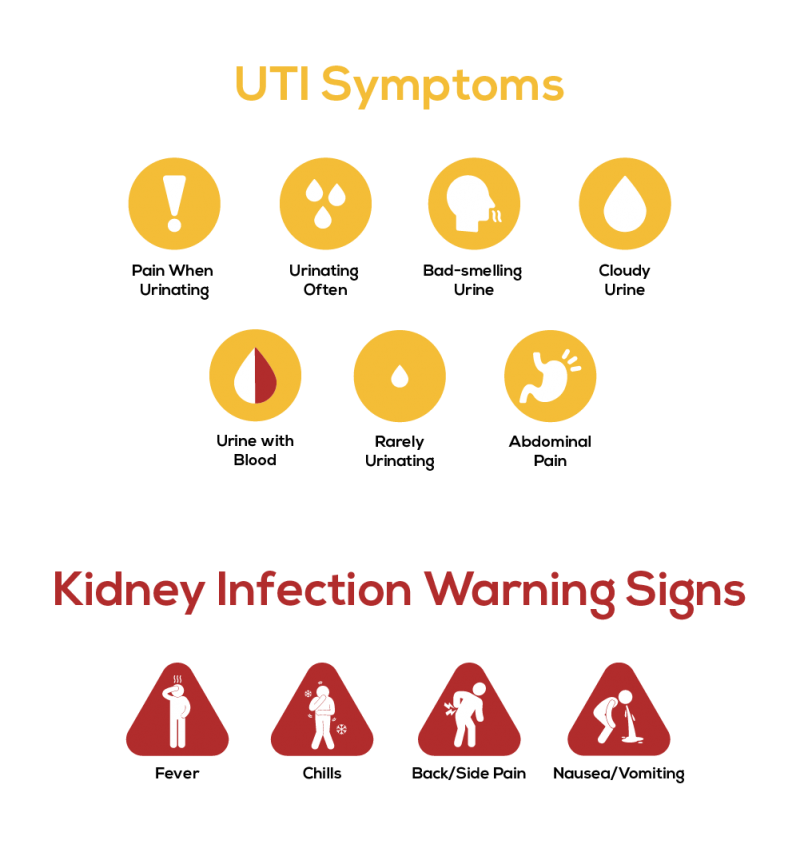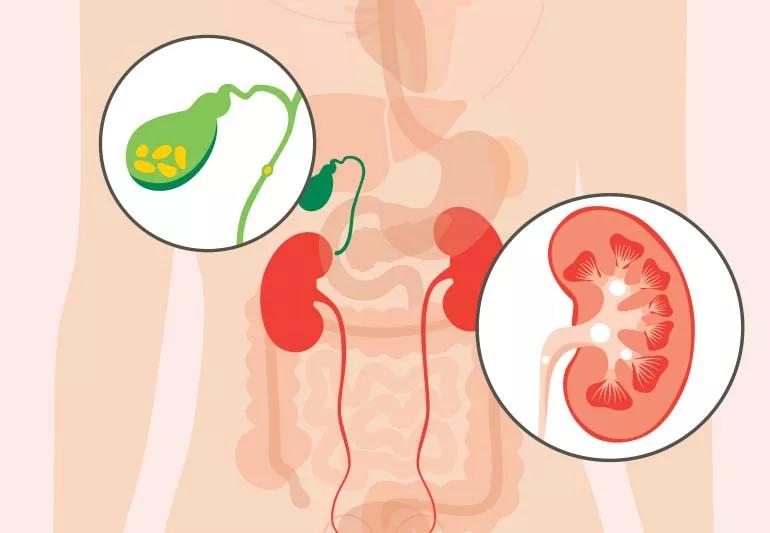Recognizing the Differences In Between Kidney Stones vs UTI: Trick Symptoms and Treatments
Recognizing the Differences In Between Kidney Stones vs UTI: Trick Symptoms and Treatments
Blog Article
Checking Out the Effects and Causes of Kidney Stones in Comparison to Urinary System Infections: A Detailed Guide
The expedition of kidney stones and urinary system infections (UTIs) discloses a complex interaction of signs and symptoms and underlying causes that require mindful examination. While both conditions can cause hematuria, they offer distinct medical attributes and emerge from different etiological elements. Comprehending the subtleties of each problem is essential for efficient medical diagnosis and monitoring. What are the key differences in their signs, and exactly how might these notify therapy approaches? The response to these questions may offer crucial understandings right into the avoidance and treatment of these usual urological concerns.
Overview of Kidney Stones
Kidney rocks, additionally called kidney calculi, type when specific substances in the urine crystallize and accumulation, bring about the growth of tough down payments within the kidneys. These stones can vary in dimension, varying from a grain of sand to a golf sphere, and can be composed of various materials, one of the most usual being calcium oxalate, uric acid, struvite, and cystine. The development of kidney stones is influenced by numerous variables, consisting of dietary habits, liquid consumption, and hereditary predisposition.
Signs of kidney stones might include extreme pain in the back or side, blood in the urine, nausea or vomiting, and constant urination, particularly as the stone relocates with the urinary system system. Diagnosis usually involves imaging researches such as ultrasound or CT scans, together with urinalysis to identify the rock's structure.
Treatment choices vary based upon the size and sort of stone, as well as the extent of signs (Kidney Stones vs UTI). Tiny stones might pass normally with increased liquid intake, while bigger stones might require clinical interventions such as lithotripsy or medical removal. Comprehending the pathophysiology and risk aspects related to kidney rocks is important for reliable prevention and monitoring
Summary of Urinary System Tract Infections
Urinary tract infections (UTIs) are typical microbial infections that influence any kind of part of the urinary system, including the kidneys, ureters, bladder, and urethra. They primarily happen when microorganisms, usually from the gastrointestinal tract, go into the urinary system, leading to inflammation and infection.
The occurrence of UTIs is significantly greater in females than males, largely due to anatomical differences, such as a shorter urethra. Risk factors include sexual activity, certain contraceptive methods, urinary retention, and dehydration. The diagnosis of UTIs is generally confirmed via pee examinations, which might disclose the existence of germs, leukocyte, or red blood cells.

Symptoms of Kidney Stones
The discomfort associated with kidney stones can show up in different ways, often leading people to look for medical focus. Among the most common signs and symptoms is serious pain, commonly local in the lower back or side, which might radiate to the abdomen or groin. This discomfort, typically called sharp or cramping, can take place unexpectedly and may rise my sources and fall in intensity.
Additionally, people may experience hematuria, or blood in the pee, which can range from tiny amounts to visible discoloration. This signs and symptom may be come with by modifications in urinary system routines, such as increased regularity or urgency, along with discomfort throughout urination. Queasiness and vomiting are likewise prevalent, commonly resulting from the body's response to extreme pain.
In some cases, people might experience fever and chills, especially if a second infection develops because of the blockage brought on by the stones. Generally, the mix of extreme pain, hematuria, modified urinary system patterns, and stomach signs and symptoms can provide considerable understanding right into the visibility of kidney stones, requiring timely clinical analysis and treatment. Understanding these symptoms is vital for prompt medical diagnosis and effective management of the condition.
Symptoms of Urinary Tract Infections
Infections within the urinary tract typically offer a variety of distinctive symptoms that can significantly impact life. The most typical signs include a consistent desire to urinate, typically gone along with by a burning feeling throughout urination, called dysuria. Individuals may also experience increased regularity of peeing, generating little amounts of urine each time.
Other notable signs include foul-smelling or over cast pee, which may indicate the visibility of microorganisms or pus. In some instances, urine may show up pink or red due to the presence of blood, a problem referred to as hematuria. Furthermore, individuals might experience pelvic pain or pressure, which can better aggravate the feeling of urgency.
Systemic signs and symptoms may also show up, such as fever, chills, and exhaustion, particularly if the infection has risen to the kidneys. It is crucial to acknowledge these symptoms early, as untreated urinary system tract infections can bring about a lot more severe difficulties. Kidney Stones vs UTI. Trigger clinical interest is advised when these signs and symptoms are observed, enabling ideal diagnostic assessment and therapy to minimize pain and stop further health and wellness issues
Reasons of Each Condition
Frequently, kidney stones and urinary system system infections arise from unique yet occasionally overlapping causes that can affect individuals in different ways. Dehydration, not enough fluid intake, and high-sodium diet plans can exacerbate these problems, advertising crystallization within the urinary tract.

Understanding these unique causes is critical for prevention and therapy. Kidney Stones vs UTI. While lifestyle alterations may alleviate the danger of kidney stones, appropriate health and timely treatment of urinary system system infections are vital for decreasing their recurrence and linked difficulties
Final Thought
In summary, kidney rocks and urinary tract infections existing unique symptoms and underlying reasons. Kidney stones are identified by serious pain and metabolic variables, while urinary system infections mostly involve microbial infections resulting in urinary seriousness and discomfort. Although both problems can result in hematuria, their development systems vary substantially. Recognizing these differences is vital for effective medical diagnosis and treatment, inevitably improving individual outcomes for those impacted by either problem.
The expedition of kidney rocks and urinary tract infections (UTIs) exposes an intricate interplay of signs and underlying reasons that warrant cautious assessment.Urinary system tract infections (UTIs) are common microbial infections that influence click reference any part of the urinary system, including the kidneys, ureters, bladder, and urethra.Often, kidney rocks and urinary system tract infections occur from unique yet occasionally overlapping reasons that can affect individuals in a different way.In recap, kidney rocks and urinary system system infections existing distinct symptoms and underlying causes. Kidney stones are defined by serious discomfort and metabolic aspects, while urinary system system infections largely involve bacterial infections leading to urinary urgency and discomfort.
Report this page